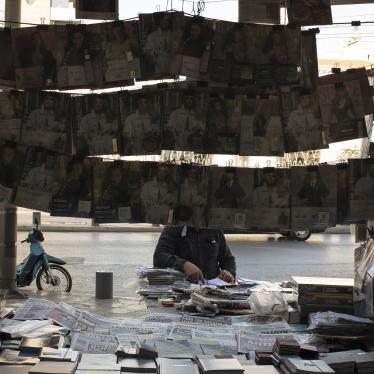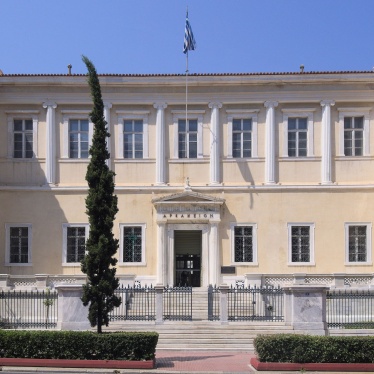On December 5, a court in Athens will hear a defamation lawsuit against journalists who exposed state surveillance by Greek authorities. The case, brought by Grigoris Dimitriadis, nephew of Greek Prime Minister Kyriakos Mitsotakis, fits into the category of cases referred to as “strategic lawsuits against public participation” (SLAPPs), whose primary purpose is to deter critical reporting.
Dimitriadis filed the lawsuit against the newspaper Efimerida ton Syntakton (Editor’s Journal, EfSyn), three of its executives, and journalists Nikolas Leontopoulos, Thodoris Chondrogiannos, and Christoforos Kasdaglis from investigative outlet Reporters United. He had previously brought a lawsuit against EfSyn, Reporters United, and Leontopoulos and Chondrogiannos, as well as journalist Thanasis Koukakis. The court dismissed that case in October, citing the public interest value and veracity of the journalists’ reporting.
Both cases stem from the journalists’ investigations into the “Predatorgate” surveillance scandal involving the use of spyware to hack the devices of political figures, prominent businesspeople, and journalists, allegedly by Greek intelligence services and on direct orders from the prime minister’s office. In the fallout from the scandal, Dimitriadis resigned as general secretary in the prime minister's office and from his role overseeing the National Intelligence Service (Ethnikí Ypiresía Pliroforión, EYP).
Now, despite the earlier case’s dismissal, Dimitriadis is back in court seeking €3.3 million in damages and the removal of articles implicating him in the surveillance scheme.
Dimitriadis’ legal actions against those who uncovered the scandal come amidst growing concerns around impunity in Greece for those responsible for illegal surveillance of citizens. Last July, the Supreme Court prosecutor cleared all Greek state agencies and officials of responsibility for the use of Predator spyware, despite documented evidence of their involvement, including findings from a European Parliament investigation. This raises serious concerns that Greek authorities prioritize protecting those in power over accountability.
Dimitriadis’ cases highlight the urgent need for the Greek government to take concrete steps to protect journalists from legal intimidation, including by enacting robust anti-SLAPP legislation. Such legislation has been agreed on at the EU level in November 2023. The government should also ensure transparency and accountability regarding the surveillance scandal.
Journalists in Greece and elsewhere play a vital role in uncovering the truth and holding those responsible for abuses to account. Attempts to deter them from doing their jobs through SLAPPs not only threaten media freedom but also undermine efforts to ensure justice and uphold the rule of law.










